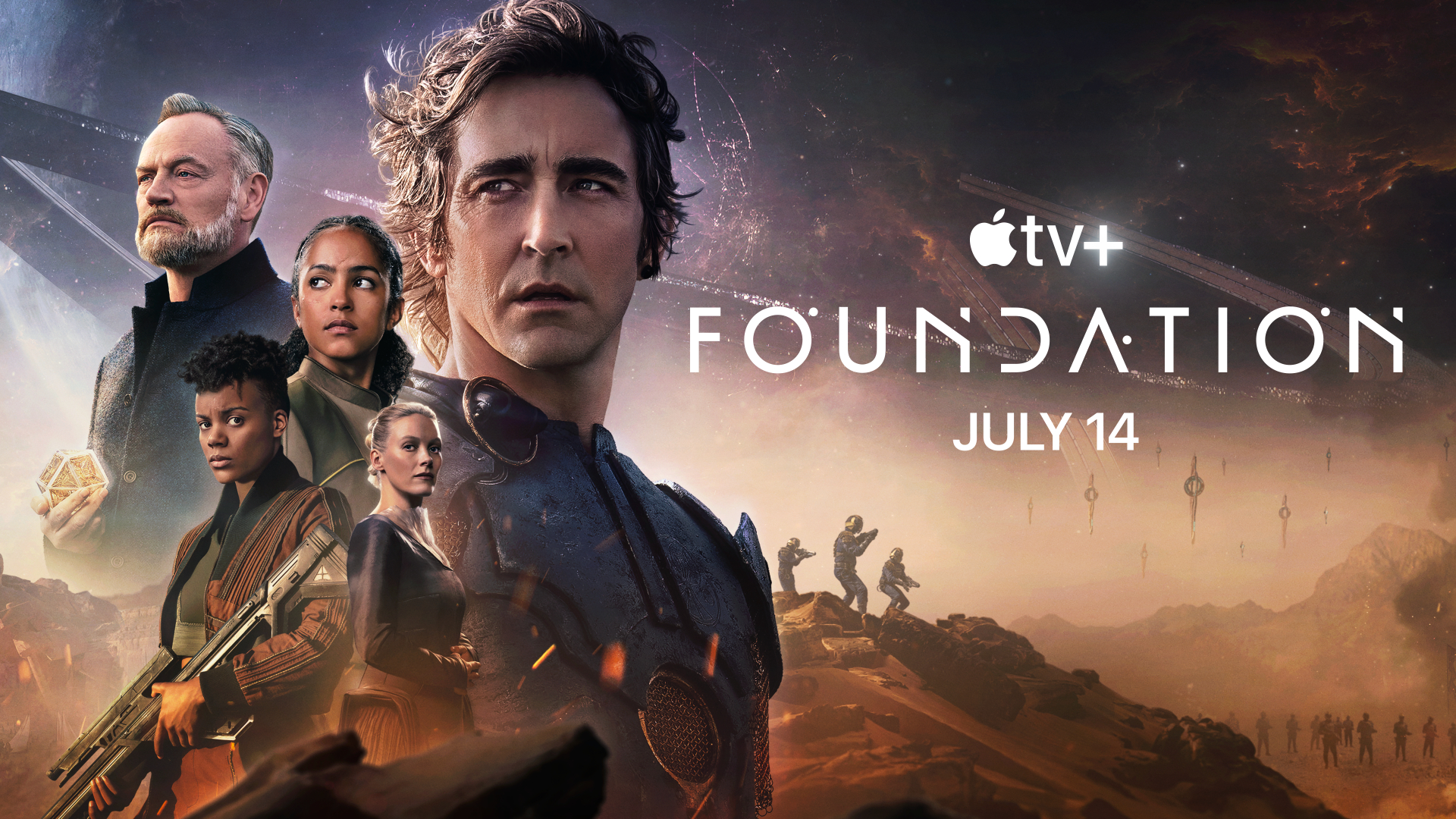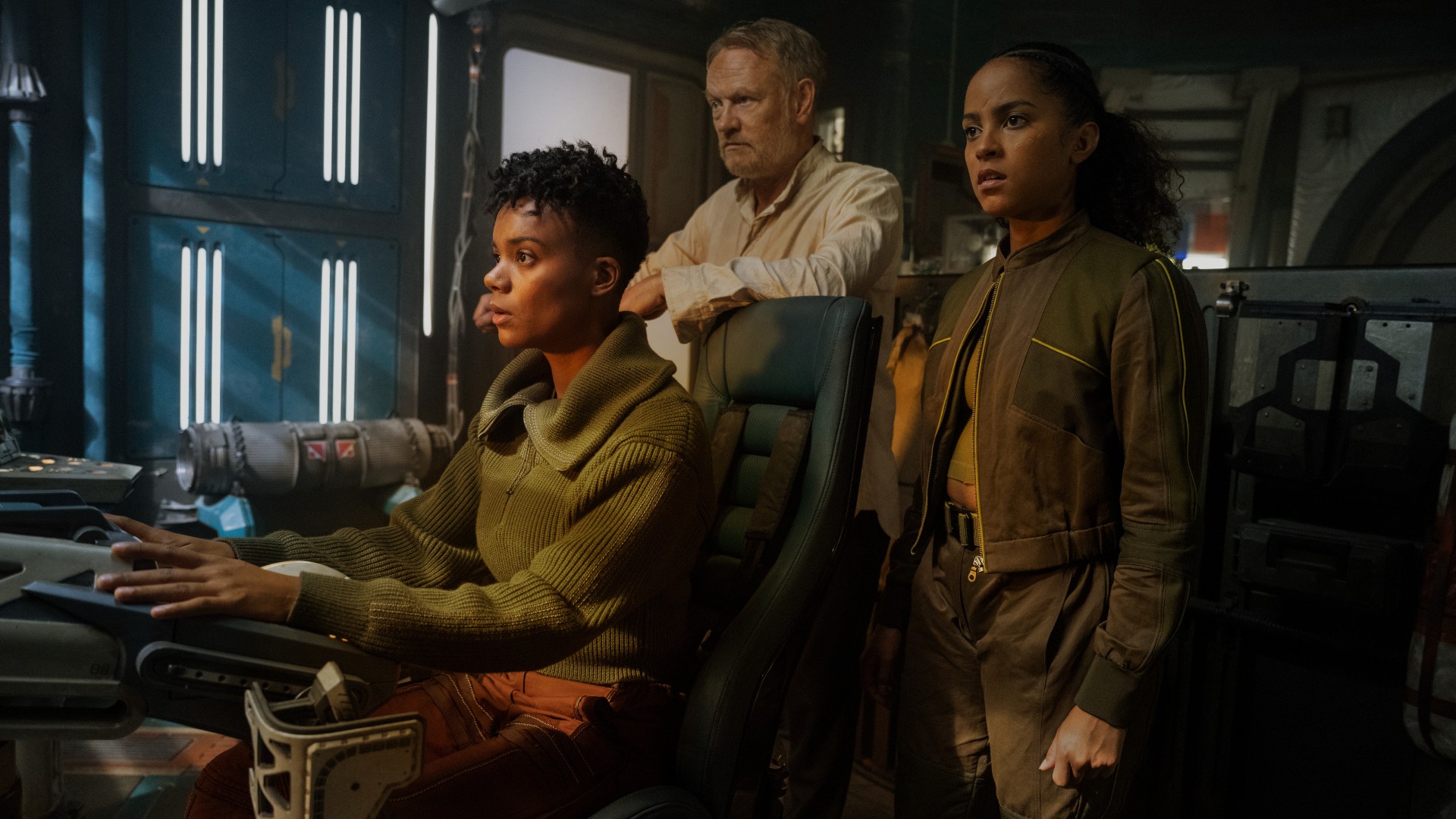
A mere decade ago, nobody would ever have dared take a punt on adapting Isaac Asimov's "Foundation." No traditional T.V. network would have had the patience, the BBC could never have justified the budget, and even cable giant HBO (who'd had a decent track record of bringing sprawling book sagas to the screen after "Game of Thrones") would have balked at a big-budget science fiction drama that took at least a season-and-a-half to give you a decent sense of where it's headed.
Indeed, even in an era when streaming giants with very deep pockets are throwing crazy amounts of cash at the likes of "The Lord of the Rings: The Rings of Power" and "The Crown," Apple TV Plus's persistence with "Foundation" feels like an almighty gamble. By the end of season two, however, you get the sense that it may be starting to pay off. Will "Foundation" become not only one of the best sci-fi T.V. shows based on books, but one of the best sci-fi T.V. shows of all time?
In case you've had your memory wiped since season one aired in late 2001, "Foundation" is set in a distant future where a Galactic Empire (not that one) has been ruled by a Genetic Dynasty of Clones – descendants of the original Emperor Cleon – for centuries. At any one time, there are three Cleons on the thrones: youngster Brother Dawn, learning the ropes; Brother Day, in his prime and running the show; and the older Brother Dusk, supplying wisdom and, well, painting pictures.
Not everyone is happy with the status quo, however, so mathematician Hari Seldon devises a complex algorithm to predict the future and establish a better, alternative way of living via the eponymous Foundation. Imagine Luke Skywalker leaving Tatooine to take down the Empire with a math textbook rather than an X-Wing – over the course of a few hundred years – and you're halfway there.
"Foundation"'s first season was something of an endurance test. It was a T.V. show to be admired rather than enjoyed. As bold as it was to tell the centuries-spanning story of a futuristic space-faring society, it often felt like an exercise in complex world-building for its own sake – if ever a series needed a glossary or "Spider-Man: Across the Spider-Verse"-style footnotes, "Foundation" was it.
Big ideas and noble ideals seemed as important as the storytelling in a largely emotionless universe where few characters were likeable – or even, for that matter, relatable. Too often, the show felt like it was relying on visuals so spectacular they made you wish you owned a bigger, higher definition T.V.
Most of this still applies when "Foundation" season 2 picks up the story 138 years later. There's a new Cleon in charge and – despite having DNA in common with his predecessors (he's still played by Lee Pace, of course) – this one's a little different. He now has plans to find himself a queen and produce an heir the old-fashioned way. However, when would-be assassins interrupt a very close encounter with robot aide/lover Demerzel (Laura Birn), his in-built paranoia is magnified. Meanwhile, a well-timed reawakening from cryosleep has allowed Hari's protégée, Gaal Dornick (Lou Llobell), to come face-to-face with Salvor Hardin (Leah Harvey), former Warden of the Foundation on Terminus and the child Gaal never knew she had.
For much of this new run of episodes "Foundation" remains ponderous and talky, the direction of travel frustratingly vague. As an entity, the Foundation is nebulous and tricky to define – not so much a place as an ideal – so it can be hard to get a handle on who's fighting whom and why. And, with an almost entirely new cast, you don't even get the safety net of familiar faces to anchor you to the story.
Other shows, most notably "Game of Thrones," have featured a rapid churn of characters, but few have ripped things up and started again quite as "Foundation" does here. Plotlines that felt extremely significant in season one – such as the arc about a Brother Dawn falling in love and running away from the royal palace – are now merely mentioned in passing.

And characters who have returned are not always well served. Lee Pace's performance as Brother Day has too many echoes of his stern turns as Thranduil and Ronan the Accuser in "The Hobbit" and "Guardians of the Galaxy" respectively. Meanwhile, there's just not enough chemistry between Gaal and Salvor in what is – in theory, at least – the emotional anchor of the show. Although Jared Harris is always an engaging screen presence, the various incarnations of Hari – who sacrificed himself for his vision in season one, and is now seen as a prophet by members of the Foundation – can feel overly belligerent and cryptic.
They're not helped by the over-seriousness of the writing. In this version of the distant future, the art of telling jokes seems to have been forgotten along with myths of planet Earth. It's something of a cliché that science fiction can lose sight of humanity among all the spaceships, but "Foundation" season 2 does little to dispel it.
Yet, for all that, the show really finds its space legs in the second half of the run. If screen space opera can be measured on a scale between the Kubrickian rigor of "2001: A Space Odyssey" (notably one of the best sci-fi movies ever made) and the adventure serial action of "Star Wars", season 2 is drawn more and more to the gravity of George Lucas's galaxy far, far away. New characters such as cleric Brother Constant (Isabella Laughland) and the rogue-ish Hober Mallow (Dimitri Leonidas) have charm to spare, the space battles (when they come) are suitably fun, and the peerless production design almost enters "The Fifth Element"'s orbit in terms of its spectacular excess. We also learn plenty more about the few established characters and get some big revelations along the way, too.

It's taken a ridiculous amount of time to get here, but if you've already made it this far with "Foundation" you'll be rewarded if you stick with season 2. After all that ponderous build up, it's evolved into a show that can tackle weighty themes about authoritarianism, free speech, and the push/pull between faith and science. It does all this while also delivering sci-fi spectacle on a mind-blowingly epic scale. There are many reasons why nobody had ever attempted anything quite like this on T.V. before, but now 20 hours into the journey we can finally see why this "Foundation" had to be built.
For more in-depth "Foundation" coverage, check out our exclusive interview with 'Foundation' showrunner David S. Goyer where talks about dropping F-bombs and the shows fantastic visual effects.







